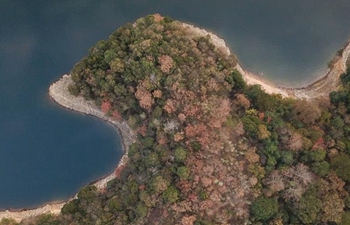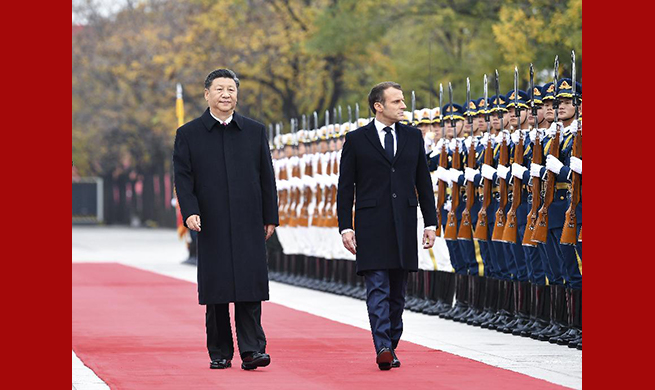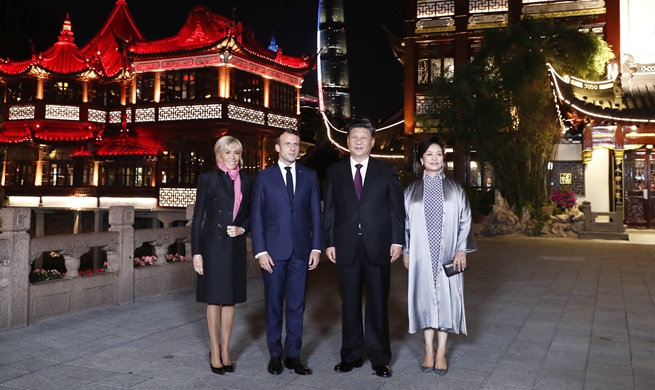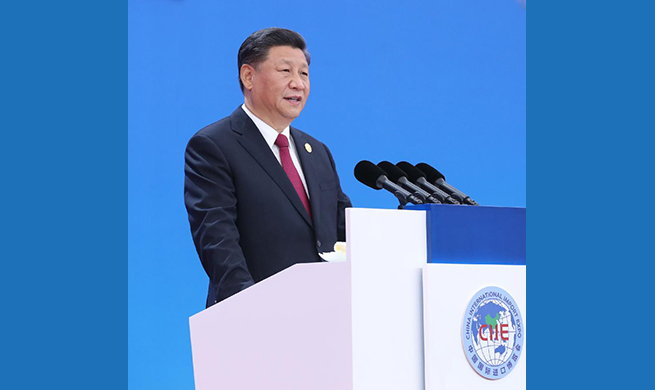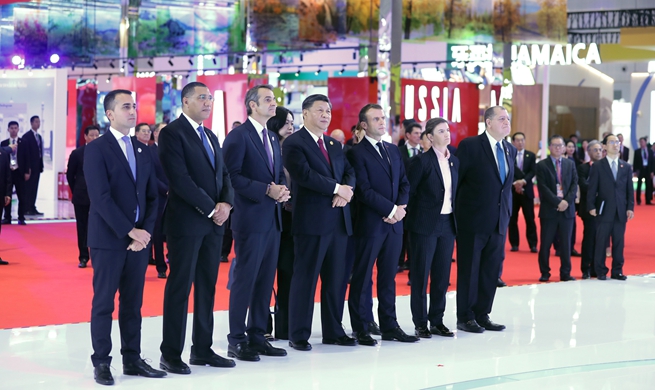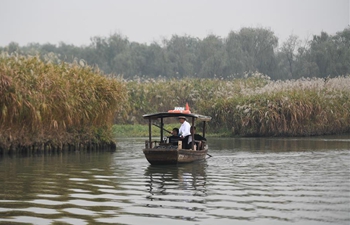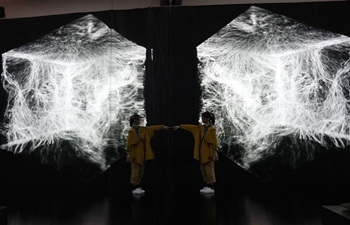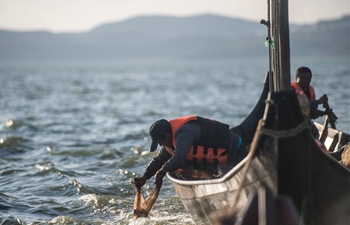BERLIN, Nov. 6 (Xinhua) -- Germany's governing coalition is in heated discussion to ratify a law that will evade EU gas directive entrapping Nord Stream 2 and will possibly make a vote within this week, German media Bild reported on Wednesday.
The law amendment, if approved, will delete key provisions and thus make Russia's Gazprom to own the gas pipeline and at the same time sell their gas through it, a condition in accordance with Russian law.
The Danish government last Wednesday gave permission to Nord Stream 2 to pass through waters in its exclusive economic zone, also making it easier for the project to implement.
Some analysts said that Nord Stream 2, which is vital to Germany's energy sector, is now "almost all clear".
ENERGY COMPLEMENT
The Nord Stream 2 is an offshore natural gas pipeline project that transports natural gas from Russia to Germany via the Baltic Sea.
When finished, the 1,230-km pipeline route can deliver 55 billion cubic meters of gas per year from Russia to Europe.
For several years the passage of pipelines through the Baltic Sea has been under intense scrutiny and international debate.
The project is operated by Nord Stream 2 AG, whose majority shareholder is the state-owned Russian energy company Gazprom that has been accused by the United States of pursuing political goals.
Combined with Nord Stream, the first gas pipeline directly connecting Russia and Germany through the Baltic Sea which went into operation in 2011, the total transport volume amounts to well over 100 billion cubic meters of natural gas per year.
According to the operating company of Nord Stream 2, the pipeline will transport enough gas to supply 26 million households, making the project of great importance for Germany's energy policy.
Germany is currently amid a large restructuring of its energy sector, not only phasing out coal-fired energy generation but also simultaneously shutting off its nuclear power plants.
The last nuclear power plant is scheduled to be shut down in 2022 and a governmental commission has recommended a possible complete phase-out of coal-fired energy generation in Germany by 2038 at the latest.
Although renewable energies are contributing an increasing share to Germany's energy mix, the pace of the expansion is apparently slowing down. In the first half of 2019, coal and nuclear power combined still contributed more than 40 percent to Germany's energy generation.
Germany's Economic Minister Peter Altmaier stressed that Germany would need more gas for its energy supply during the interim period between the transition from coal and nuclear energy to renewable energy.
Germany must have "sufficient energy at all times at affordable prices", Altmaier said. "This means that we also have an interest in the Nord Stream 2 project being realized together with our European partners."
MERKEL DEFENDS NORD STREAM 2
Nord Stream 2 also met fierce criticism not only from European states such as Ukraine and Poland, which fear declining revenues from transit fees ,but also from abroad, mainly the United States.
U.S. President Donald Trump criticized that the Nord Stream 2 pipeline "really makes Germany a hostage of Russia if things ever happen that were bad."
German Chancellor Angela Merkel defended the pipeline and argued that the construction would not increase Germany's dependence on Russian gas.
"A Russian gas molecule remains a Russian gas molecule, no matter whether it comes via Ukraine or the Baltic Sea," said Merkel.
"If we introduced Russian gas on a large scale during the Cold War, then I do not know why the times today should be so much worse. That is why we say Russia remains a partner," Merkel added.
Although no sanctions have been issued so far, the U.S. ambassador to Germany, Richard Grenell, also warned German companies involved in the construction of Nord Stream 2 of an "increased risk of sanctions" .
U.S. Energy Secretary Rick Perry said in June that a sanctions bill on companies involved in the project would come in the "not too distant future."
While the U.S. government sees Europe's energy independence as well as the stability of transit countries such as the Ukraine endangered by Nord Stream 2, the concerns against the German-Russian pipeline might also be due to the fact that the United States are aiming to sell more liquefied natural gas (LNG) to Europe via large tankers.
In spite of all criticism, Merkel repeatedly stated that Nord Stream 2 would be "justifiable". At the same time, Merkel gave her word that Ukraine "must remain a transit country despite Nord Stream."
With Denmark's green light to complete the final 147 kilometers of the energy project, it looks like nothing can stop the completion of Nord Stream 2 now.


